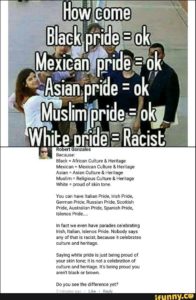Growing up in a society that seems to value all lives except for those who look like you can be a harrowing experience. Seeing and hearing things that you thought were of the past, stories passed own from ancestors you never got the chance to meet. Except now its reality. Prior to this class I’d never thought in depth about the many issues faced by people of color in this country in terms of how we can fix it. We all face issue (sometimes life and death issues) that has always been a fact of life. I’d never really thought too much of it. Life was just this in between place, you come here you gain some experiences and then you’re gone, everyone has a unique set of experiences and that’s just the way it is. I can distinctly remember a time in my life when I had no idea that there was anything other than the poverty, struggle and violence that I saw all around me. When the view outside of your bedroom is the local drug dealer standing on the corner, a few social injustices don’t seem all that important.
#BlackLivesMatter swept through the world like nothing I’d ever seen before. This movement gave people of color a voice in a multitude of platform (social media, tv, etc.) in a way that they never had before. All of a sudden there was a sense of hope even throughout all of the horrendous things that were happening all over the country. The election of Donald J. Trump for president of the United States was not so much a surprise as it was a disappointment. Despite everything that was happening I still held out hope that American voter would get past the idea of voting for ‘the lesser of two evils’ and vote based on competency. After riding on the eight year reign of hope that came with the election and re-election of Obama. having a man who spews hate laced rhetoric in the white house was quite daunting. All that we can do as a community is keep moving forward and have hope that things will turn around. We have never been ones to take things lying down, and I don’t suspect that we will start now. I believe that this moment will be one of the stories that I pass down to descendants, who never got to the chance to meet me. I will leave them stories of hate and fear and most of all hope.

